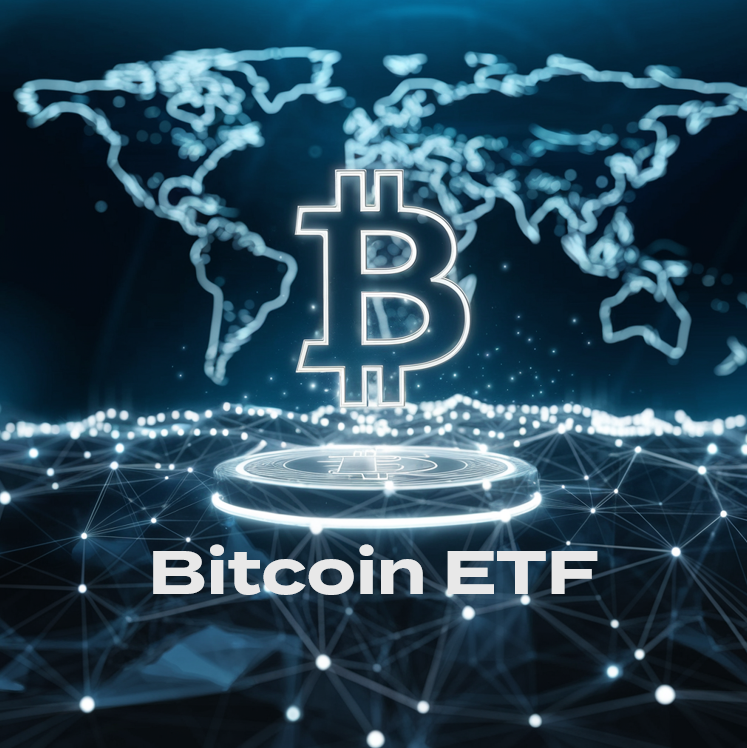Bitcoin ETF: Connecting Traditional Finance to the World of Crypto
Introduction
Investors experience a fundamental shift in their financial perspectives because of Bitcoin ETF. Modern investors benefit from ETF because these products unite basic financial structures with cryptocurrency innovation. The prices of Bitcoin can now be reached through Bitcoin ETFs which let investors manage Bitcoin movements by removing the need to deal with digital asset functions.
The growing acceptance of Bitcoin in standard financial operations brings these regulated funds as a controlled way to participate in crypto investment. The financial instruments offer important benefits to investors who want market diversification through Bitcoin without the risks associated with direct digital asset ownership. The knowledge of these tools becomes essential for successful movement through the changing financial environment according to Dowsers.
What Is a Bitcoin ETF?
The Bitcoin Exchange-Traded Fund (ETF) represents a regulated financial product available through markets. Two different methods exist for tracking Bitcoin prices which include direct asset ownership or derivatives including futures contracts.
Trading through Bitcoin ETFs takes place directly on stock market platforms. Stock and bond investors gain increased familiarity when they participate in Bitcoin ETFs.
Two Main Types
- These funds contain actual Bitcoin directly for investment. The market value of Bitcoin has a direct correlation to current share prices in the market.
- Futures-Based ETFs: These use Bitcoin futures contracts. Funding entities monitor Bitcoin price fluctuations but avoid maintaining physical Bitcoin ownership.
How Bitcoin ETFs Work
Running Bitcoin ETFs simplifies cryptocurrency investment since they manage technical networking requirements while professionals oversee operations.
- The fund handles its investment in Bitcoin through direct purchases of Bitcoin or by obtaining futures contracts. Cold storage systems serve as the primary security method for safe asset storage thus reducing the potential of hacker attacks.
- ETF shareholders conduct their trades by using normal brokerage services to purchase or sell the shares. No crypto wallets needed.
- The worth of Bitcoin ETF shares matches the cost fluctuations of Bitcoin. Futures-based ETFs present price variations to their underlying value due to expense costs of their derivative contracts.
ETFs will become available in 2024 through spot products. Share issuance through these funds maintains an extremely tight connection to Bitcoin market prices.
Why Bitcoin ETFs Matter
Accessibility
Through Bitcoin ETFs investors can access Bitcoin exposure while bypassing obligations of private key management and exchange interaction. Investing in cryptocurrencies takes place exclusively through traditional brokerage platforms which offer the same buying process as stock purchases.
Regulatory Oversight
Bitcoin ETFs must comply with strict securities laws because they receive regulatory oversight. Companies under regulatory oversight run these ETFs which enhance transparency although they provide protection through insured safekeeping services.
Liquidity and Flexibility
ETFs operate within typical business trading events. Those who use Bitcoin ETFs can purchase or sell their Bitcoin at a pace which is superior to typical Bitcoin-to-Bitcoin trades. Investments through Bitcoin ETFs can now be made from retirement accounts as numerous retirement platforms give approval to these funds.
The team at Dowsers finds great value in innovations that enhance DeFi’s safety performance along with its functional intelligence for all users.
Risks to Keep in Mind
Market Volatility
Bitcoin experiences notorious price changes that attract widespread popularity. The value decline of 20% within Bitcoin would create an immediate reduction in ETF share prices.
Regulatory Uncertainty
Crypto regulations are still evolving. The implementation of new regulations has the potential to change both Bitcoin exchange-traded fund management operations and compliance procedures.
Costs and Tracking Errors
Managing Bitcoin ETFs requires higher management costs as opposed to ordinary ETFs. Funds that use futures face tracking errors because of the need to execute contract rollovers.
The major concern of Dowsers revolves around providing investors with complete knowledge regarding potential risks alongside available opportunities when making investment choices.
What’s Next for Bitcoin ETFs?
Institutional adoption is growing. Regulatory clarity is slowly improving. The near future will reveal both multi-asset crypto ETFs as well as blockchain-integrated funds to the investing market.
The growth of cryptocurrencies will lead Bitcoin ETFs to become normal investment portfolio assets which unite traditional and digital financial methods.
Dowsers provides knowledgeable assistance during this period of transformation in a secure manner.
Conclusion
Investors who want to access cryptocurrency now have simplified entry through Bitcoin exchange-traded funds. Such products eliminate complex entry requirements by implementing new regulatory and security measures. The investment equation for Bitcoin ETFs features the risks of both volatility and fees although they bring advantages to general accessibility.
The growing financial landscape will most likely increase the significance of Bitcoin ETFs. Dowsers focuses on providing you with all necessary tools alongside investment knowledge for the present-time digital market.
Stay curious. Stay secure. Stay with Dowsers.
Hacks in DeFi cost a stunning $2 billion per year to digitalassets Holders and erode trust in Builders protocols.
Avoid hacks